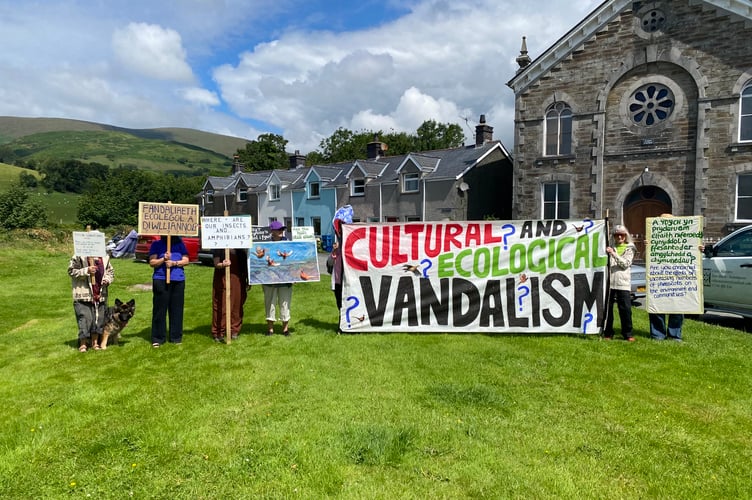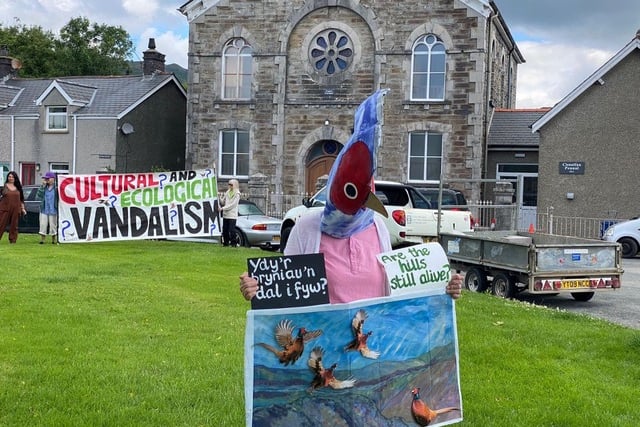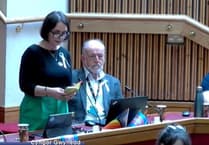Protestors gathered in Pennal last weekend to protest a pheasant and partridge shot in the area.
During shooting season from October to February the residents claim their “peaceful village is turned into a war zone”.
15 protestors attended with banners asking the questions - ‘Cultural and ecological vandalism?’, ‘Are the hills still alive?’, ‘Where are our insects and amphibians?’, and ‘Are you concerned about the effects of increasing numbers of pheasants on the environment and communities?’.

The group are against Cambrian Birds shoots, a specialist company in game-rearing and driven game shooting, which hosts shoots in Pennal and nearby Dyfi Falls.
The protestors claim they rear and release thousands of pheasants and partridge into the area, stating: “They cause considerable damage to the environment and the peaceful enjoyment of village life.
“Pheasants damage vegetable growers' crops, compete with native species for food and increase the numbers of predators which are then persecuted.
“Treated as wildlife, although a non-native species, pheasants are unregulated.
“It is to be hoped that the government will rapidly increase support for the farming community so that they do not feel the need to diversify into something that has such damaging effects on their land and the local residents.”
Cambrian Birds owns a large game farm and two hatcheries, running shoots in Pennal covering 5,000 acres.
The legal killing of predators such as foxes, weasels, stoats and crows is routine in gamebird shooting.
Though the Royal Society for the Protection of Birds (RSPB) is “neutral on the ethics of shooting”, the charity is campaigning for tighter regulation of “intensively-managed gamebird shooting”- the high-density release of pheasants and red-legged partridge for shooting.
RSPB states: “These cause particular ecological harm, with implications for both biodiversity and the climate emergency”.
Cambrian Birds said they hadn’t been contacted by the protestors, and were unaware of the gathering, adding: “The environmental points being raised by them have not been scientifically proven so can only be deemed as sweeping statement, the social points are opinions rather than fact.
“The management of sporting estates brings a wealth of environmental, social and economic benefits to rural communities across the UK.”



.jpeg?width=209&height=140&crop=209:145,smart&quality=75)

Comments
This article has no comments yet. Be the first to leave a comment.